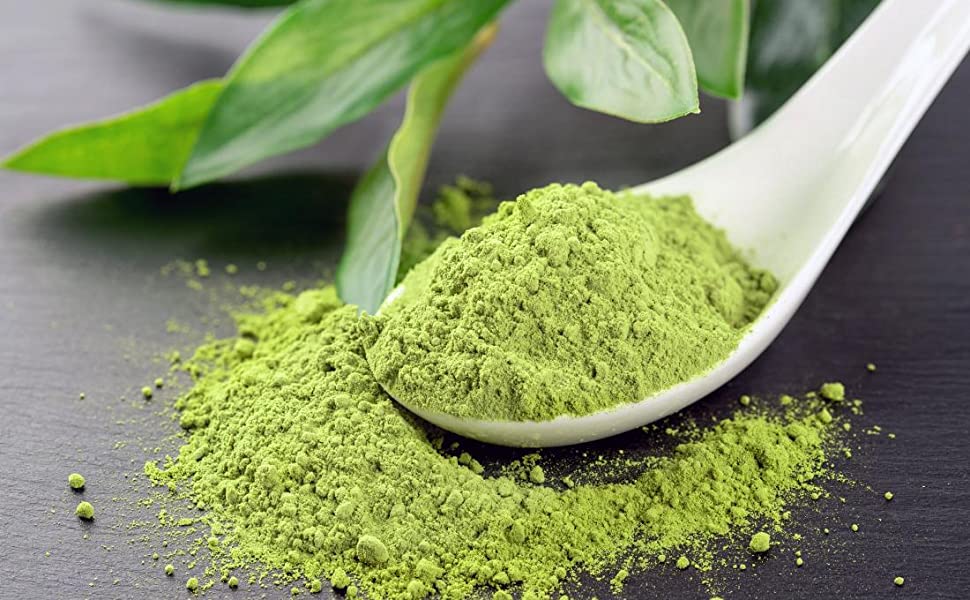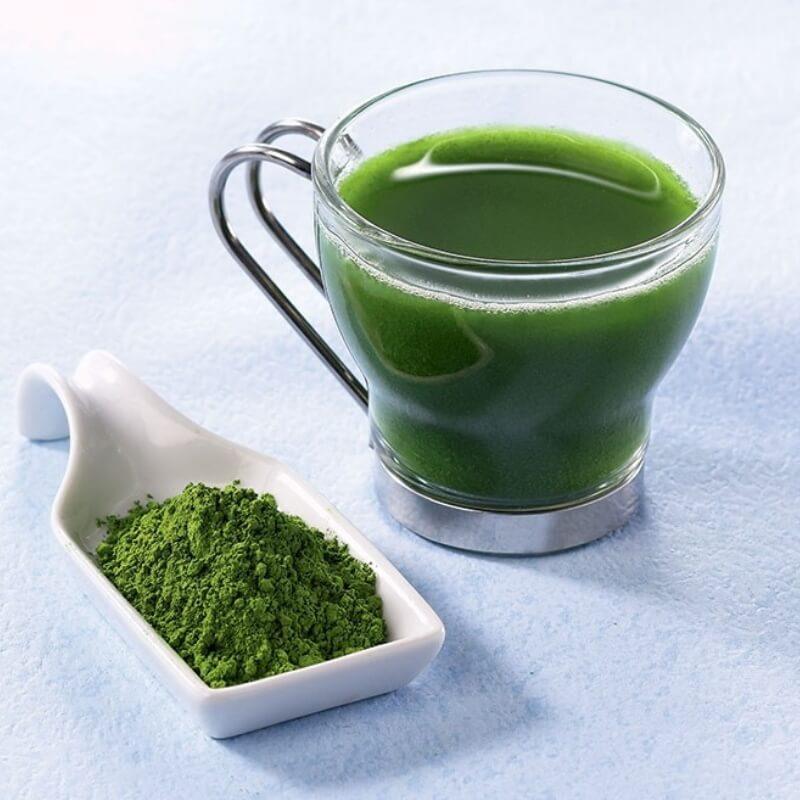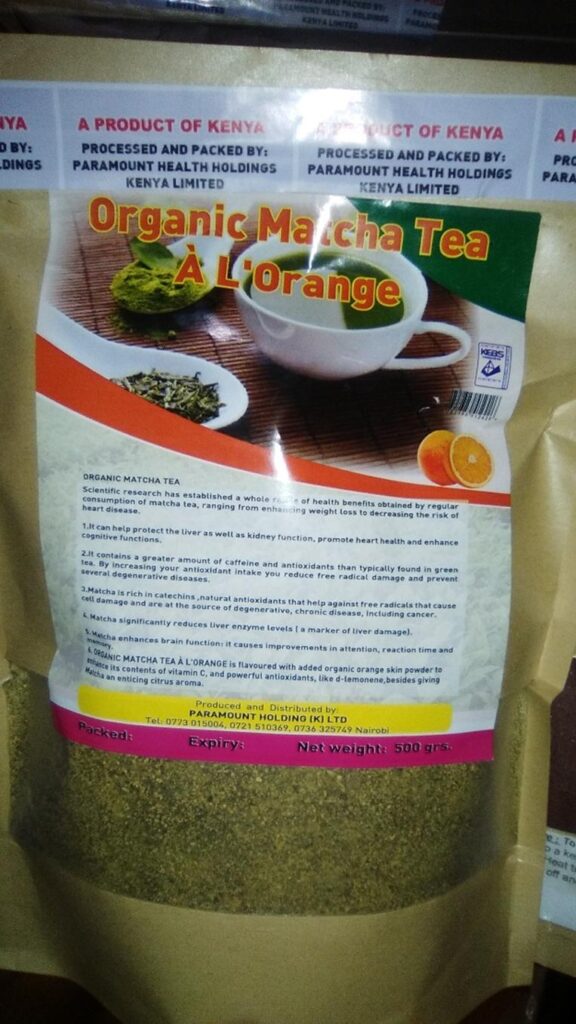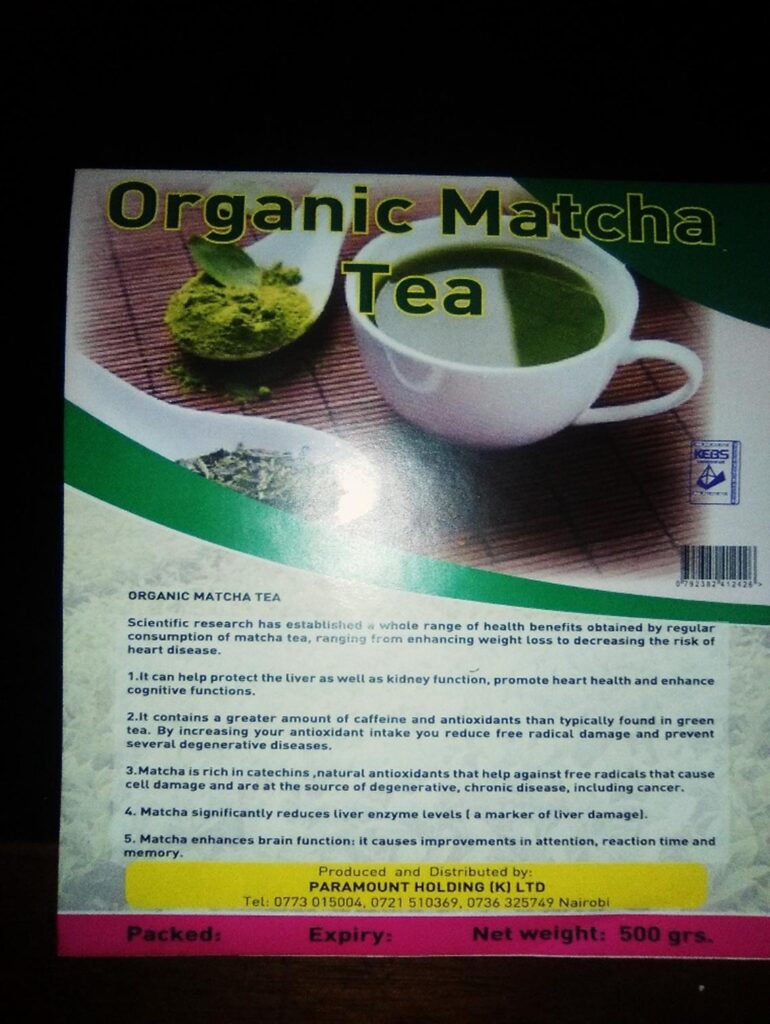Call us to place your order +254 721 510369 | +254 736 325749
The Antioxidant Powerhouse: Unleashing the Potential of Matcha Tea and Why It is a Game-changer

Regular consumption of matcha tea has been scientifically proven to offer a wide range of health benefits, from aiding in weight loss to reducing the risk of heart disease. Here are some of the key advantages of incorporating matcha into your daily routine:
Matcha tea is rich in compounds that have been linked to various health benefits, including:
- Cancer prevention: Matcha contains EGCG, a type of catechin known to have powerful anti-cancer properties.
- Liver protection: Matcha helps protect the liver from damage.
- Weight control: Matcha may aid in weight loss and maintenance.
- Protects liver and kidney function: Matcha has been shown to reduce liver enzyme levels, a marker of liver damage, and may decrease the risk of liver disease among regular drinkers.
- Promotes heart health: The high antioxidant content in matcha helps to prevent degenerative diseases, including heart disease.
- Enhances cognitive function: Matcha contains a concentrated amount of caffeine and the amino acid L-theanine, which work together to improve attention, reaction time, and memory.
- Reduces stress and promotes relaxation: L-theanine has been shown to increase alpha wave activity in the brain, inducing relaxation and decreasing stress levels.
The unique combination of caffeine and L-theanine in matcha provides a sustained energy boost without the crash that often follows caffeine consumption. With its high antioxidant content and potential health benefits, matcha is an excellent addition to a healthy lifestyle.
Key Nutritional Information:
- 35 mg of caffeine per half teaspoon (about 1 gram) of matcha powder
- Rich in catechins, natural antioxidants that help against free radicals
- Contains L-theanine, which promotes alertness and relaxation.

Matcha’s Cancer-Fighting Properties: Unlocking the Power of EGCG
Matcha, a rich source of antioxidants, has been shown to possess cancer-preventing properties, thanks to its high content of epigallocatechin-3-gallate (EGCG), a potent catechin. Research suggests that EGCG in matcha may:
- Inhibit cancer cell growth: Studies have demonstrated that EGCG can slow the growth of breast cancer cells, reduce tumor size, and even kill off prostate cancer cells.
- Target various types of cancer: Test tube studies have shown that EGCG is effective against skin, lung, and liver cancer, highlighting its potential as a cancer-fighting agent. Research has demonstrated the effectiveness of EGCG in inhibiting cancer cell growth and killing off cancer cells in test tube studies.
- Boost overall defenses: By incorporating matcha into a well-rounded diet and healthy lifestyle, you may be able to enhance your defenses against degenerative and infectious diseases, including cancer. and achieve your weight loss goals.

The Heart-Healthy Benefits of Matcha: Reducing Cholesterol and Boosting Metabolism
Matcha, a rich source of antioxidants, has been shown to have a positive impact on heart health and weight management. Matcha’s high antioxidant content may help protect against heart disease and stroke by reducing inflammation and oxidative stress. The benefits of matcha include:
- Reducing cholesterol levels: Matcha has been shown to decrease levels of total and “bad” cholesterol, as well as triglycerides.
- Preventing LDL oxidation: By preventing the oxidation of LDL cholesterol, matcha may help protect against heart disease and stroke.
- Boosting metabolism: Studies have demonstrated that matcha can speed up metabolism, increasing energy expenditure and boosting fat burning.
- Enhancing weight loss: Matcha’s ability to enhance weight loss is well-documented, with studies showing that it can help maintain weight loss over time.
- Metabolic effects: Matcha’s ability to boost metabolism may be due to its high levels of catechins, which can increase energy expenditure and fat burning.
- Weight loss benefits: The weight loss benefits of matcha may be due to its ability to increase satiety, reduce cravings, and enhance fat burning.
Preparing Matcha Tea: A Step-by-Step Guide

Traditional Matcha Tea
- Sift the matcha powder: Use a bamboo scoop or a fine-mesh sieve to sift 1-2 teaspoons (2-4 grams) of matcha powder into your cup.
- Add hot water: Pour 2 ounces (59 ml) of hot water over the matcha powder.
- Mix with a bamboo whisk: Use a bamboo whisk to mix the matcha and water together in a zig-zag motion, frothing the matcha to the desired consistency.
Adjusting the Ratio of Matcha to Water
- Thinner tea: Use 1/2 teaspoon (1 gram) of matcha powder and mix with 3-4 ounces (89-118 ml) of hot water.
- More concentrated version: Use 2 teaspoons (4 grams) of matcha powder and mix with 1 ounce (30 ml) of water.
Tips and Variations
- Combine with turmeric: Mix matcha with turmeric to create a unique and flavorful tea.
- Add to milk-based drinks: Stir matcha into milk-based foods and drinks, such as lattes, for added nutrition and flavor.
- Consume in moderation: Limit your daily matcha intake to 1-2 cups to avoid excessive caffeine consumption and potential sleep disruptions.
——————————————————————————————————————
From Fatigue to Focus: How Matcha Tea Can Improve Your Productivity.
Try starting your day with an Energizer Matcha Smoothie and you’ll notice the difference.
Pineapple Matcha Energizer Smoothie Recipe
Servings: 2 Prep Time: 5 minutes Cook Time: none Total Time: 5 minutes
Ingredients:
- 2 large bananas (ripe)
- 1 ½ cups pineapple (chopped)
- 2 handfuls organic spinach (or organic kale)
- 1 cup plant-based milk (unsweetened)
- 2 tsp matcha (pure matcha powder)
- 2 handfuls ice
Instructions:
- Combine bananas, pineapple, spinach, milk, and matcha in a blender. Blend on low for 1 minute, then high for 1 minute.
- Scrape down the sides of the blender with a spatula to ensure everything is well mixed.
- Blend on high for another minute or until smooth.
- Add ice and blend until smooth.
- Taste and adjust as needed by adding more ice, milk, or flavorings.
Tips and Variations:
- For a creamier smoothie, add more plant-based milk or banana.
- Boost the nutritional value by adding superfoods like mushroom powder, maca powder, or goji berries.
- Add mango for extra vitamin C and A, or dates for sweetness and iron.
- Experiment with different combinations of fruits and spices to find your perfect flavour.
Storage:
- Store in an airtight container in the refrigerator for up to 48 hours.


Our MATCHA TEA IS OFFERED IN TWO VERSIONS:
1. ROYAL ORGANIC MATCHA TEA (CLASSIC)
2.ROYAL ORGANIC MATCHA A L’ORANGE – MATCHA naturally flavoured with orange skins , which not only enhances its tanste but also adds another set of antioxidants, including vitamin C.
Both products come in pouches of 100, 250 and 500 grams.
For further information and recipes to use Matcha :
https://matchasource.com/matcha-recipes
Disclaimer:
This content is strictly the opinion of its author and is meant for informational and educational purposes only. It is not intended to provide medical advice or to take the place of medical advice, diagnosis or treatment from a personal physician.
Readers of this content are advised to consult their doctors or qualified health professionals regarding specific health questions. Neither the author nor the publisher of this content takes responsibility for possible health consequences of any person or persons reading or following the information in this educational content.
All readers of this content, especially those taking prescription or over-the-counter medications, should consult their physicians before beginning any nutrition or supplement, or lifestyle program.
——————————————————————————————————————



